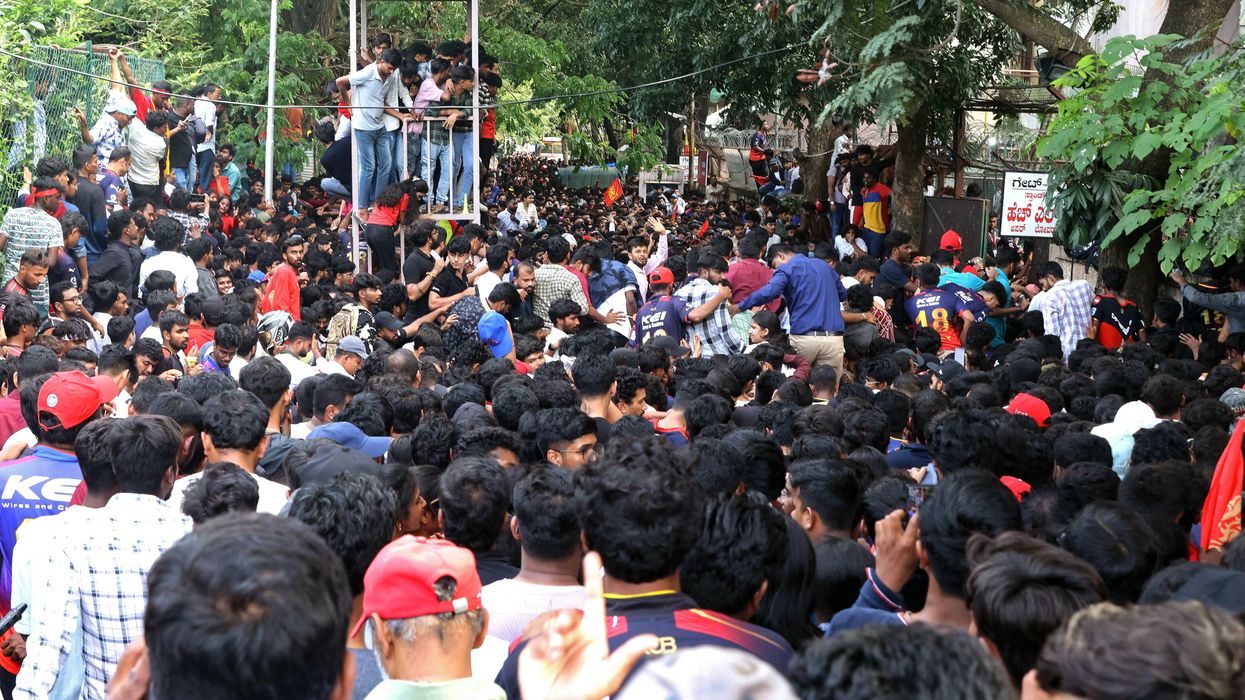A STATUS report submitted to the Karnataka High Court on the stampede at Bengaluru’s Chinnaswamy Stadium, which left 11 people dead, has blamed Royal Challengers Bengaluru (RCB), their event management partner DNA Networks Pvt Ltd, and the Karnataka State Cricket Association (KSCA) for organising the June 4 victory parade and celebration without permission or providing mandatory details to city authorities.
Government sources confirmed to PTI that the report has been submitted to the court.
Event intimation, not permission: report
According to the report, the KSCA, on behalf of DNA Networks Pvt Ltd, submitted a letter to Cubbon Park police station at around 6.30 pm on the day of the IPL final between RCB and Punjab Kings in Ahmedabad.
The letter stated, “Should RCB emerge victorious in the tournament, the management of RCB/DNA Entertainment Networks Private Limited intends to plan potential victory parades around the M. Chinnaswamy Stadium, culminating in victory celebrations at the stadium. This was in the nature of an intimation, not a requisition for permission as required under the law.”
Police denied permission due to missing information on expected crowd size, logistics, and crowd control plans. The short notice also made it difficult to process the proposal.
Victory parade held despite denial
Despite the denial, RCB went ahead on June 4 and announced the public ‘Victory Parade’ via multiple posts on social media, starting at 7.01 am.
The final post at 3.14 pm announced the parade would begin at 5.00 pm and end with celebrations at the stadium. This was the first post to mention the availability of free passes online, but by then large crowds had already gathered.
The first four posts received significant attention with viewership figures of 16 lakh, 4.26 lakh, 7.6 lakh, and 17 lakh.
BMRCL ridership that day was 9.66 lakh, compared to an average of six lakh, supporting estimates of a much larger gathering.
“Therefore, including those who travelled on foot, used public transport, and private means on June 4, the estimated gathering would be well beyond three lakh individuals,” the report stated.
Permission not formally sought
The report noted that the organisers did not apply for permission in the format mandated by the Licensing and Controlling of Assemblies and Processions (Bangalore City) Order, 2009.
It stated that an intimation cannot be considered as permission, especially for a large public gathering in the city centre.
Key details such as the number of expected participants, the exact location and time of the assembly, names and contacts of organisers, and plans for traffic and crowd management were not submitted.
The report said this lack of information made it impossible for police to assess the scale or prepare safety arrangements.
No trained staff, loudspeakers or bandobast requested
The report said there was no signage or loudspeakers for public instructions, no trained staff to manage crowds at entry gates or inside the stadium, and no request for loudspeaker use or police bandobast.
It also noted that the organisers did not pay for police deployment as required by a Government Order dated May 22, 2019.
Police responded on ground despite lack of coordination
Despite the lack of coordination or official approvals, Bengaluru City Police took several steps to manage the situation on June 4.
A planning meeting was held at 10 am at the office of the Joint Commissioner of Police. A total of 654 traffic police personnel were deployed, including 4 DCPs, 6 ACPs, 23 PIs, 57 PSIs, 104 ASIs, and 462 constables.
The RCB team’s route from HAL to Taj West End, Vidhana Soudha and then Chinnaswamy Stadium was regulated to avoid major disruption.
Traffic advisories and maps were shared via press, social media, and FM radio. Nine traffic diversion points were created and 125 barricades were installed, along with 11 additional barricading zones. Local schools were asked to close by noon.
BMTC’s Sarathi teams were deployed and the E-Path app was activated to help manage ambulances. A control room was set up to monitor traffic during the event.
Police personnel were stationed across eight major zones to control the public movement.
Organisers held responsible for violations
The report concluded that RCB, DNA Networks, and KSCA violated required procedures and failed to follow safety protocols.
Their failure to obtain permission and share event details in advance left the city administration to respond reactively to an event that gained traction through social media posts.
Govt action against police officials
The report said, “Recognising the need for accountability within the law enforcement hierarchy, the government took action against police officials on June 5, 2025.”
A Government Order suspended five officers, including three IPS officers: the Commissioner of Police, the Inspector General and Additional Commissioner of Police, and the Deputy Commissioner of Police, along with the Assistant Commissioner of Police for Cubbon Park and the Police Inspector of Cubbon Park.
(With inputs from PTI)





